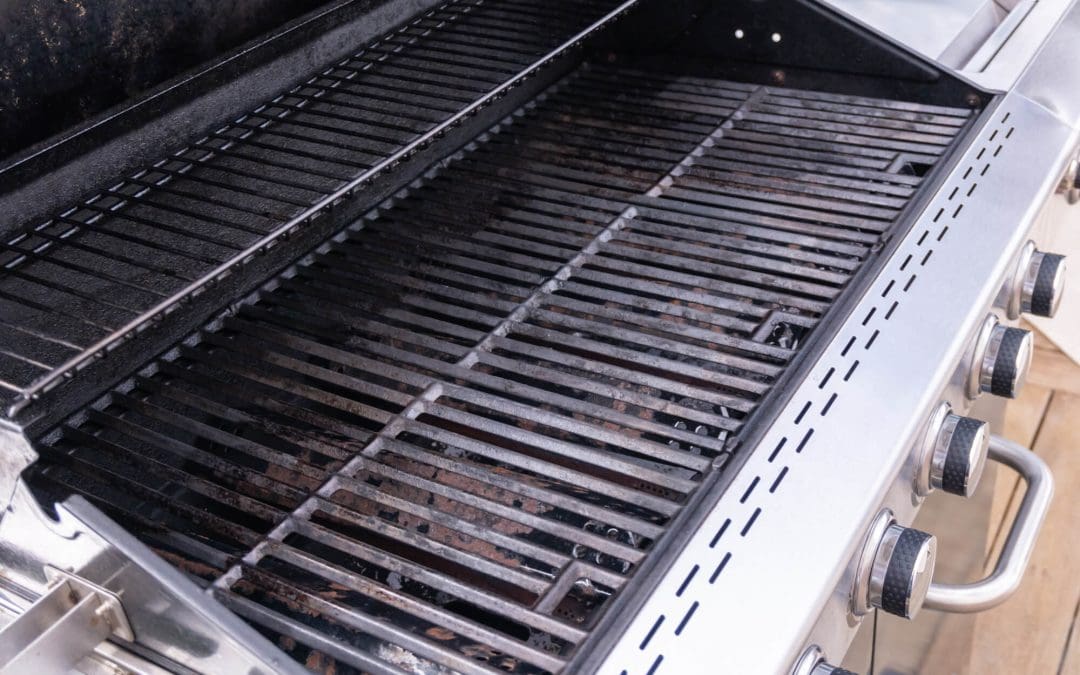There’s nothing like firing up the grill and spending time outside with friends and family. Good food, fresh air, and laughter — it’s what summer memories are made of. But before you get caught up in the excitement, keeping safety in mind is important. Grilling accidents are more common than you might think, and many can be prevented with a little extra care. These grill safety tips help keep your cookouts rolling without incident.
Start with the Right Setup for Grill Safety
A safe grilling session starts with location. Always set up your grill outdoors in a well-ventilated area—away from the house, deck railings, or overhanging branches. It might seem convenient to tuck it into a corner or under a porch roof, but that’s a fast track to danger.
Set your grill on a flat, stable surface, and make sure it’s not wobbling or leaning. If you’re using a gas grill, check for leaks in the hose or connections before lighting up. You can do this easily with a mixture of soap and water. Brush it on and look for bubbles when you turn on the gas. No bubbles mean no leaks. If you see bubbles forming, turn off the gas and replace the hose before you grill.
Stay with Your Grill
It might sound obvious, but it’s one of the most important rules: never walk away from a lit grill. With fire, things can happen fast. A sudden flare-up, a child getting too close, a gust of wind blowing sparks — you need to be there to react immediately.
Keep kids and pets at least three feet away from the grill at all times. Set up a little boundary if you have to. A few friendly reminders usually do the trick, but it’s a good idea to be consistent about this rule every time you grill.
Practice Safe Lighting and Re-lighting
If you’re lighting a gas grill, always open the lid first. Lighting it with the lid closed can trap gas inside and cause a dangerous fireball. Turn on the gas, then ignite according to the manufacturer’s instructions.
If the flame goes out while you’re cooking, turn off the gas and wait a full five minutes before trying to light it again. That gives any built-up gas a chance to clear. Rushing it can be a recipe for a flash fire.
For charcoal grills, use only charcoal starter fluid designed for grilling. Never use gasoline or kerosene. Once the coals are lit, don’t add more starter fluid — flames can travel up the stream of liquid and cause burns.
Control Flames and Grease for Better Grill Safety
Fat and grease from meats can drip onto the flames and cause flare-ups. Some flare-ups are normal, but if they get too big, they can be dangerous. Keep a spray bottle of water nearby to quickly douse small flare-ups without affecting the food.
It’s also smart to trim excess fat off meats before cooking. Regularly clean your grill grates and trays to get rid of grease buildup. This will make your food taste better and reduce the risk of a fire getting out of control.
Know How to Handle Emergencies
Despite your best efforts, accidents can happen. Be ready. Keep a fire extinguisher within reach and know how to use it. If a fire gets out of hand, don’t try to fight it with water, especially if you’re dealing with a grease fire. Water can cause grease fires to spread.
If it’s a small fire, you can usually smother it by closing the grill lid and turning off the burners or gas supply. This cuts off the oxygen feeding the fire. If it’s anything bigger than you can handle quickly, call 911 and let the professionals take over.
After the Meal
When the food’s cooked and everyone’s happy, it’s tempting to kick back and relax. But a few extra steps will make sure you end the day safely. For gas grills, make sure the burners are off and the gas supply is shut off. For charcoal grills, close the vents to cut off the air supply and let the coals cool completely before disposing of them in a metal container.
Never store a grill indoors while it’s still hot. Even warm coals can spark a fire hours later if they’re not properly cooled and contained.
FAQs About Grill Safety
How often should I check my gas grill for leaks?
Check for leaks at least once at the beginning of grilling season and any time you change out a propane tank. It’s a quick check and can prevent serious accidents.
Is it safe to grill in the garage if it’s raining?
No. Grilling inside a garage, even with the door open, can trap dangerous gases like carbon monoxide and increase fire risk. Always grill outside in open air.
What should I do if I don’t have a fire extinguisher?
If you don’t have a fire extinguisher, keep baking soda nearby. It can help smother a small grease fire. Still, it’s smart to invest in a basic fire extinguisher if you plan to grill regularly.
Can I use an extension cord with an electric grill?
It’s best to plug electric grills directly into an outlet. If you must use an extension cord, make sure it’s rated for outdoor use and has enough capacity to handle the grill’s power requirements.
Monadnock Home Inspections provides home inspections in Southern New Hampshire. Contact us to schedule an appointment.

